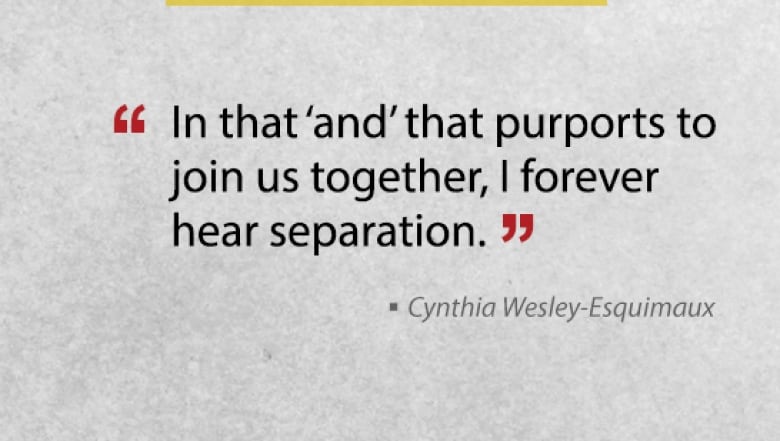Whose home and native land? And can Canada move from resistance to hope?
'Someone is living here, has built their home on Native lands, but these Native lands are not theirs.'

So, Canada...: Canadian writers, musicians, educators, poets and leaders riff on big and little topics inspired by our anthem's lyrics.
Listen: Canada's anthem speaks volumes.
"Our home and native land?" Me, I hear home on Native land, the lands of my ancestors.
A home speaks of a warm welcome, a soft touch, and a loving smile by Indigenous peoples who will never forget on whose lands "Home and Native Land" stands. In that "and" that purports to join us together, I forever hear separation. Someone is living here, has built their home on Native lands, but these Native lands are not theirs.
Are they now home on our lands, claiming ownership and control, possession? But what of those whose blood has drenched and enriched these soils for countless generations, whose ancestors have lived, loved, and sent up prayers to the Creator in appreciation for the once magnificent abundance of these lands and for their homes? I know this is me, is this you?
Whose home? Whose land? Our land, ripped and torn for beaver, lumber, gold; wanton killing of the buffalo, of the people and of an enduring way of life. Death of the sacred followed by sad decline.

Land: mine, yours, theirs, taken, occupied. Native land, already occupied by our bodies, our ceremony, our reverence, our history. Your history, spreading across our home on Native land and obscuring the truth, the pain, the madness of greed, removal, dislocation and the drip, drip, dripping of death and destruction.
Yes, but we were here yesterday, we are here today, and we will be here tomorrow. Rebirth of the sacred and celebration will follow.
You and I, we have a long history now, better than 150 years of living, dying, coming home to land, not ours, not yours, not welcome. What will the next 150 years bring? Together, we have spent the last 5 centuries laying down a story, a path, a lie — yes, a lie that must now be revealed, healed and reconciled. Will we harvest inclusion, restoration, equity, or more strife and tension because of where our homes on Native lands lay?
The practice of Indigenous knowledge mobilizes harmony, peaceful co-existence, reciprocity and gifts. We have shared many already, and have many more to give. Will Canada graciously receive the true bounty of our offerings, our knowledge, our hope? Will Canadians celebrating 150 years of Confederation acknowledge that unifying our needs as a country is the only way to create the balance prophesized by our elders as essential for the survival of humanity?
Together… pause, reflect, stop the carnage, stop the resistance, start protecting, open up and start the conversation. Can we now begin the dialogue, the one that will illuminate what was and illustrate what can be? Hope on Native land, our home on Native Land.
Next in So, Canada...: Michelle Dean's take on "true patriot love:"

